This is an authorized translation in English of a post in French by @japon: Todai-ji, le temple avec l’énorme statue de Bouddha à Nara
As my primary language is not English, there are probably some mistakes in my translation.
Remember that the person that speaks here is NOT me, Vincent Celier (@vcelier), but @japon, a French guy.
Nara is a city that can be visited easily, almost all tourist sites are close to each other. Arriving at the station I had collected a card from the tourist office and the person had described to me the places you should not miss (she certainly thought that I had not prepared my trip to Japan). She particularly insisted on the Todai-ji.
In Nara, one passes in a few minutes from the tranquility of a Japanese garden, to the noisy crowd of tourists. Returning from the garden Isui-en, it is a completely different atmosphere that awaits us when approaching Todai-ji. There are many people, many people, and we can see in the distance the impressive building that houses a bronze Buddha statue, that everyone is hurrying to admire.
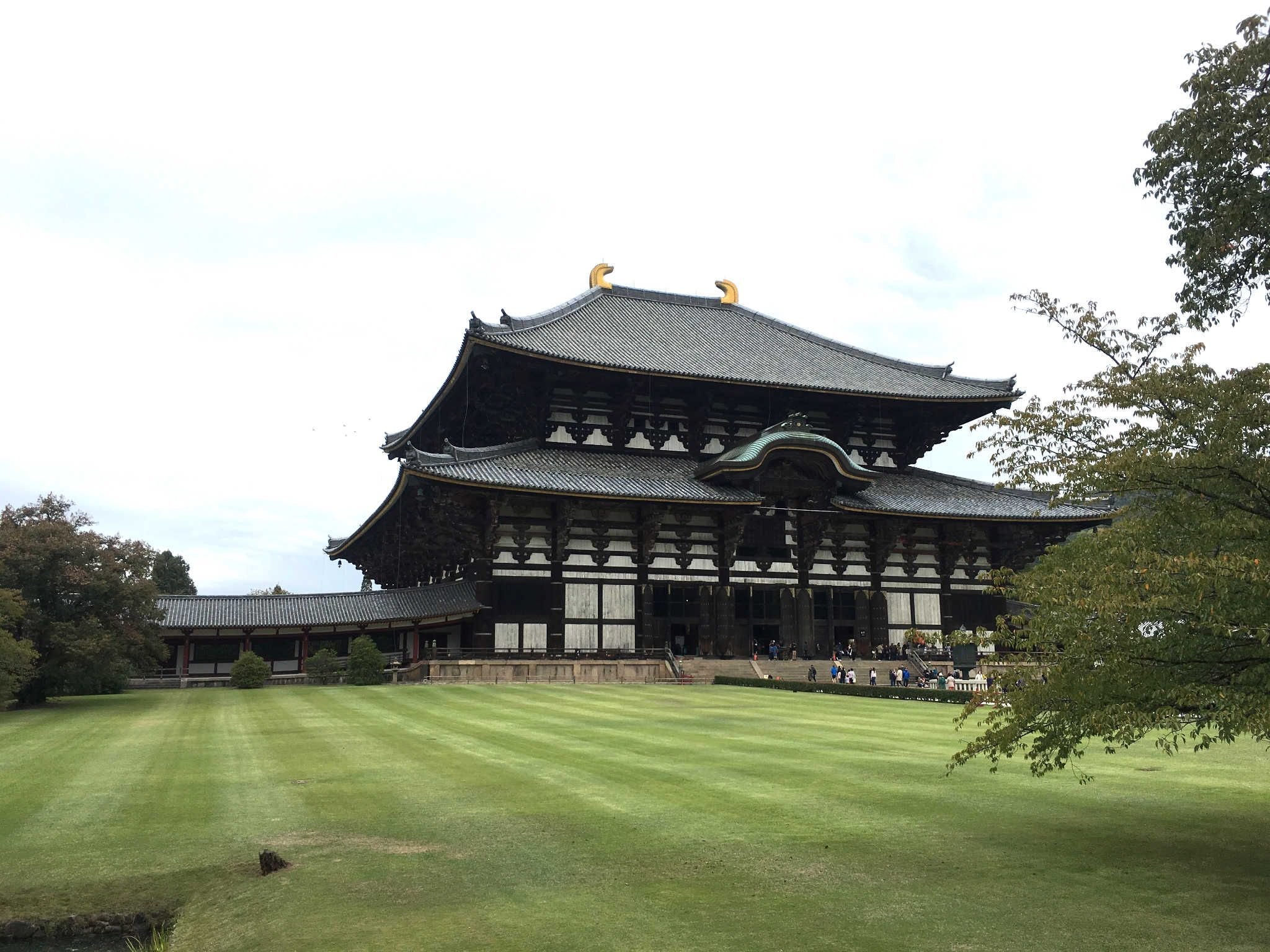
The dimensions of the hall in which the statue is housed is the largest wooden building in the world. Yet it was rebuilt in 1692 and it is now only two-thirds of its original size. Imagine the dimensions, and especially the knowledge of the Japanese architects of the time! It is therefore not surprising that the site is listed as World Heritage by UNESCO.
I buy my ticket, which indicates the dimensions of the hall and the statue. Does it means that what interests the tourists the most are the dimensions and not the divinity itself? Everything would finally be a story of size ;-)

The hall is 57 m by 50 m on the ground, for a height of almost 49 m. The statue itself is almost 15 m high. You absolutely need to see that.
Yet we are not the only ones. There are a lot of school children, whole classes of all ages. Everyone is dressed in the regulatory uniform. There would be a lot to tell about these uniforms, but it will certainly be for another time.
All these pupils walks in the company of the teacher, who gives all the explanations. And since there are many people, you have to be heard. Everyone of them use a megaphone with a nasal sound. It is an infernal cacophony, and it is far from the atmosphere of recollection that one would expect in a temple.


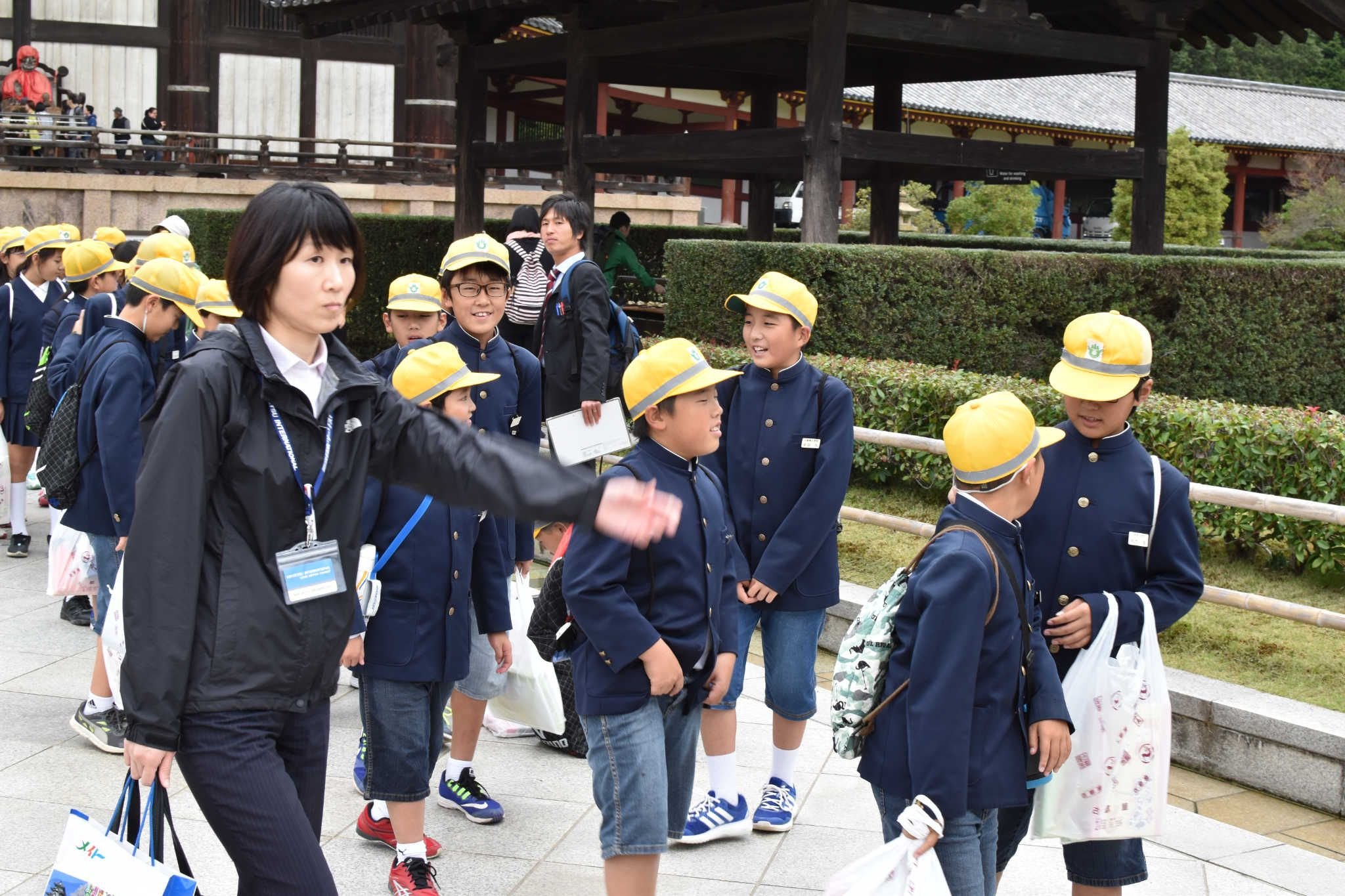
For having visited many temples, it was only in Todai-ji that I saw that. In all other temples, everyone knows how to be more discreet. Maybe one day I will learn the end of the story.
I can finally go inside. It is dark, the light is dimmed. The building is all in wood and impressive. But there are so many people and noise. We move around the statue, everyone wanting their picture.
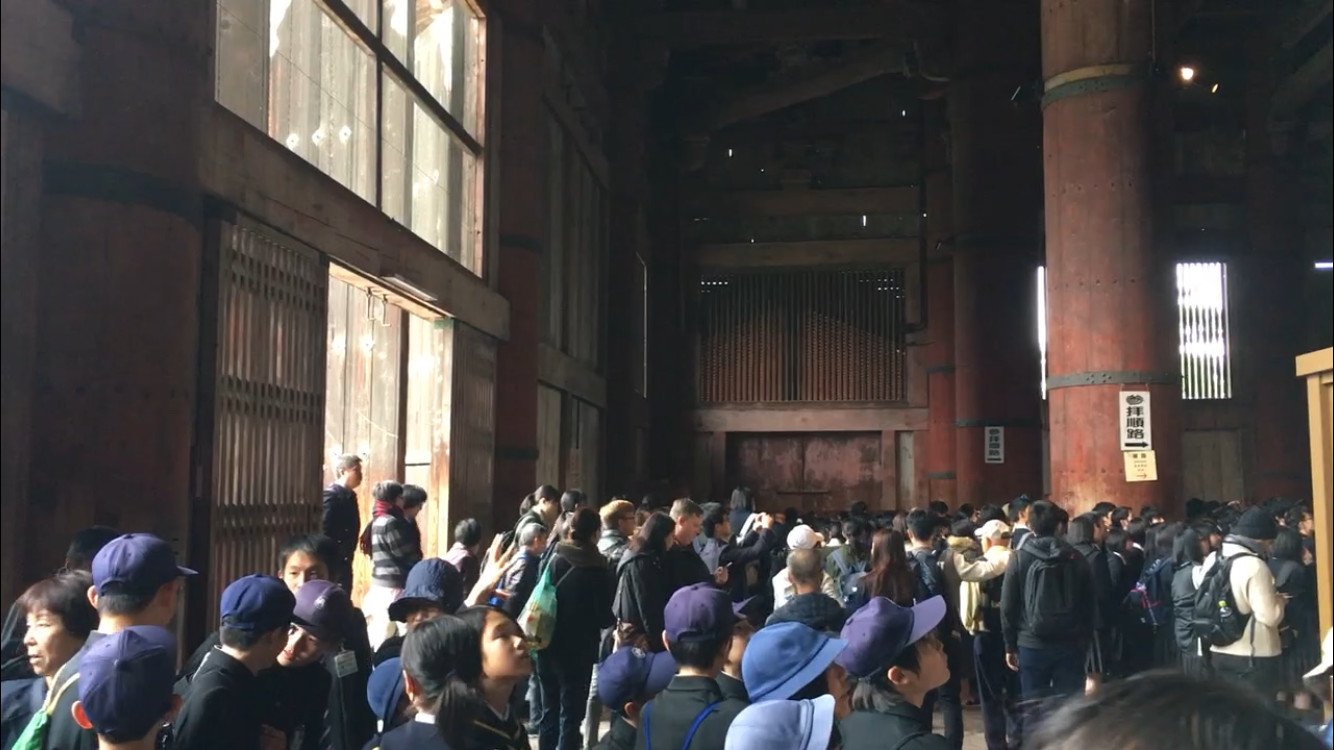
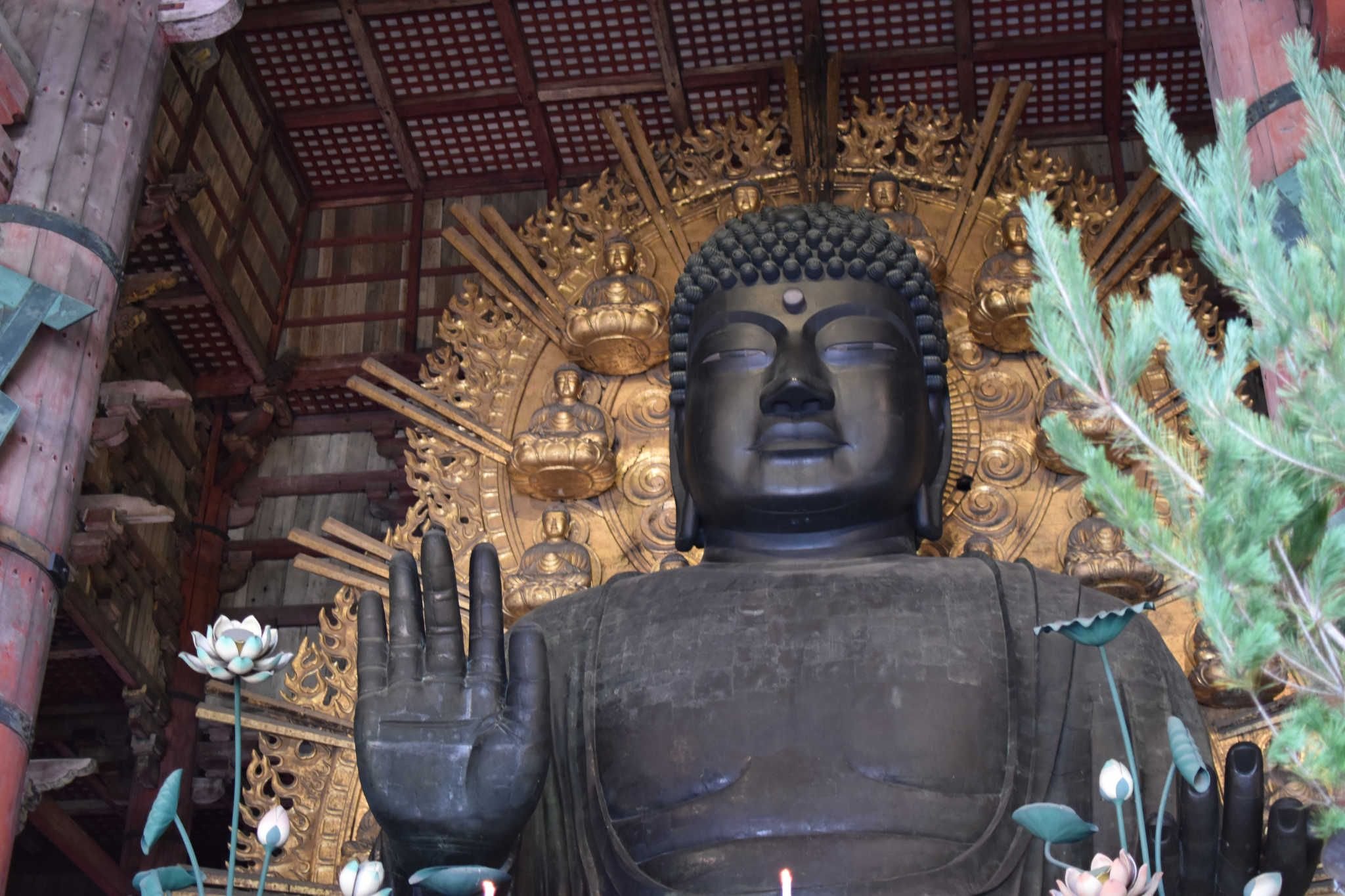
Beside the Buddha, other impressive statues complete the visit. At the back, a model of the temple as it was originally.



Claustrophobic people should abstain. We have trouble moving, we have an oppressive feeling. I come out on the forecourt of the temple. The place is still beautiful, although one is far from traditional Japanese gardens. There are rather large expanses of grass, hedges cut straight.
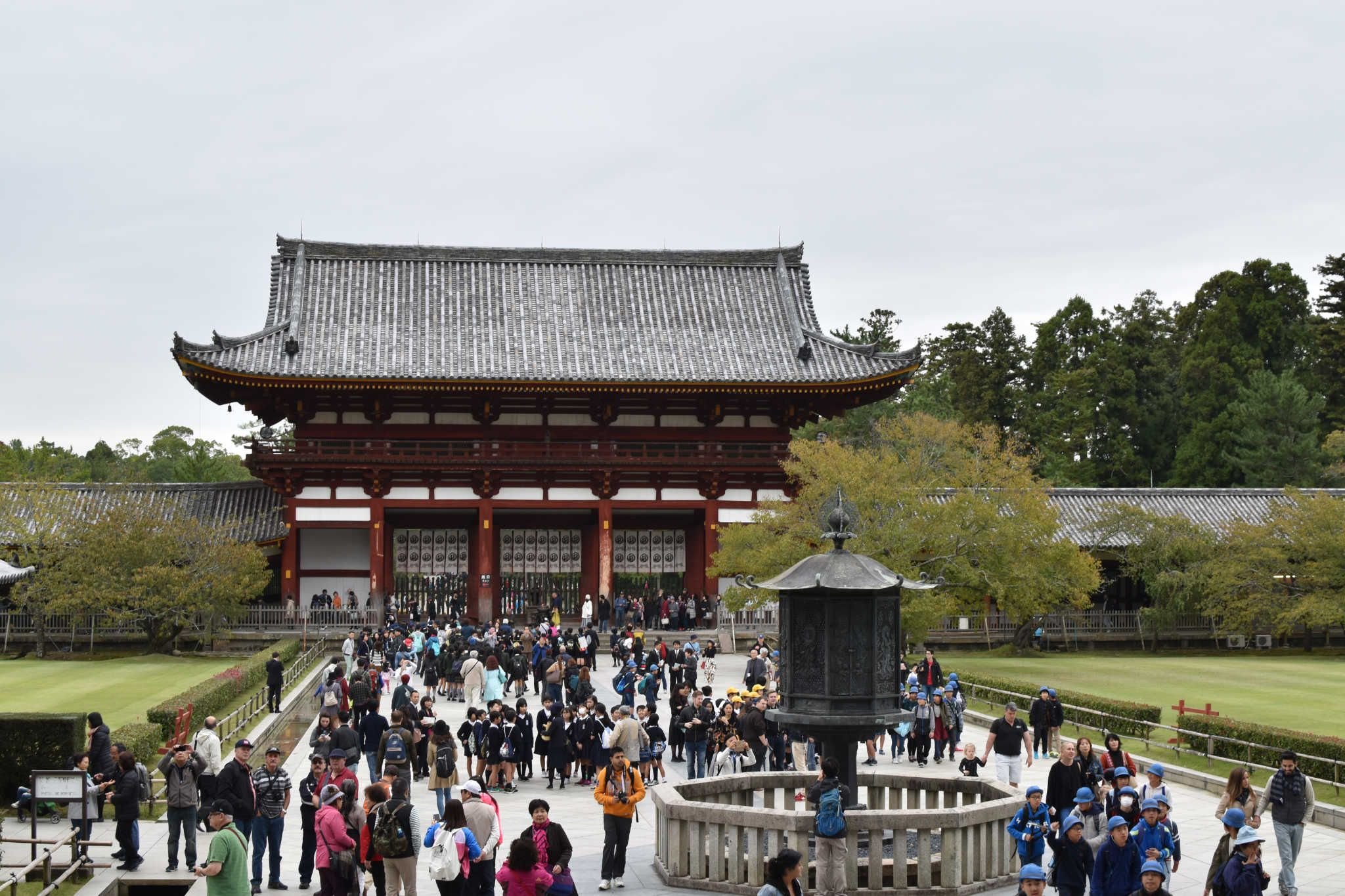
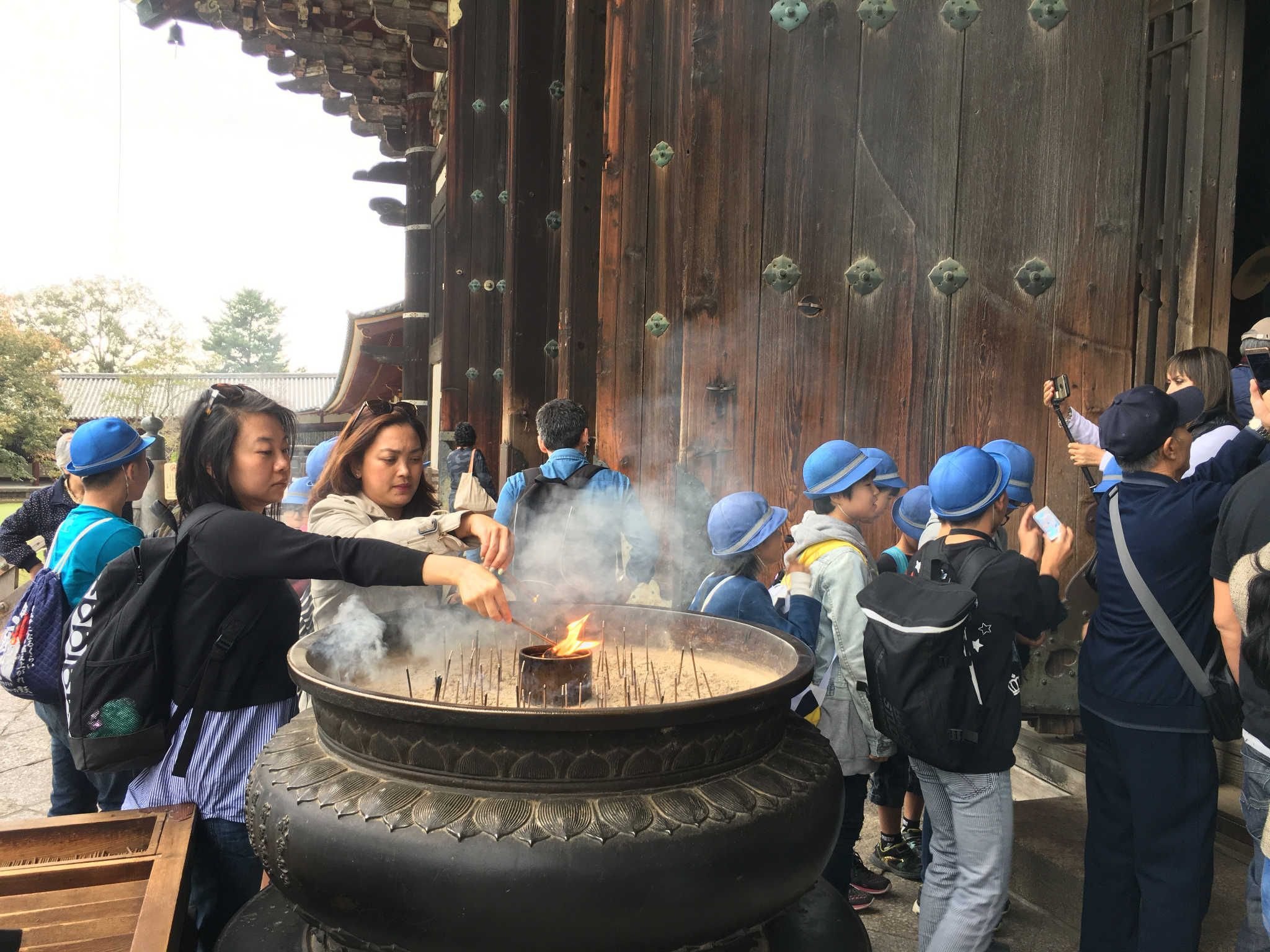
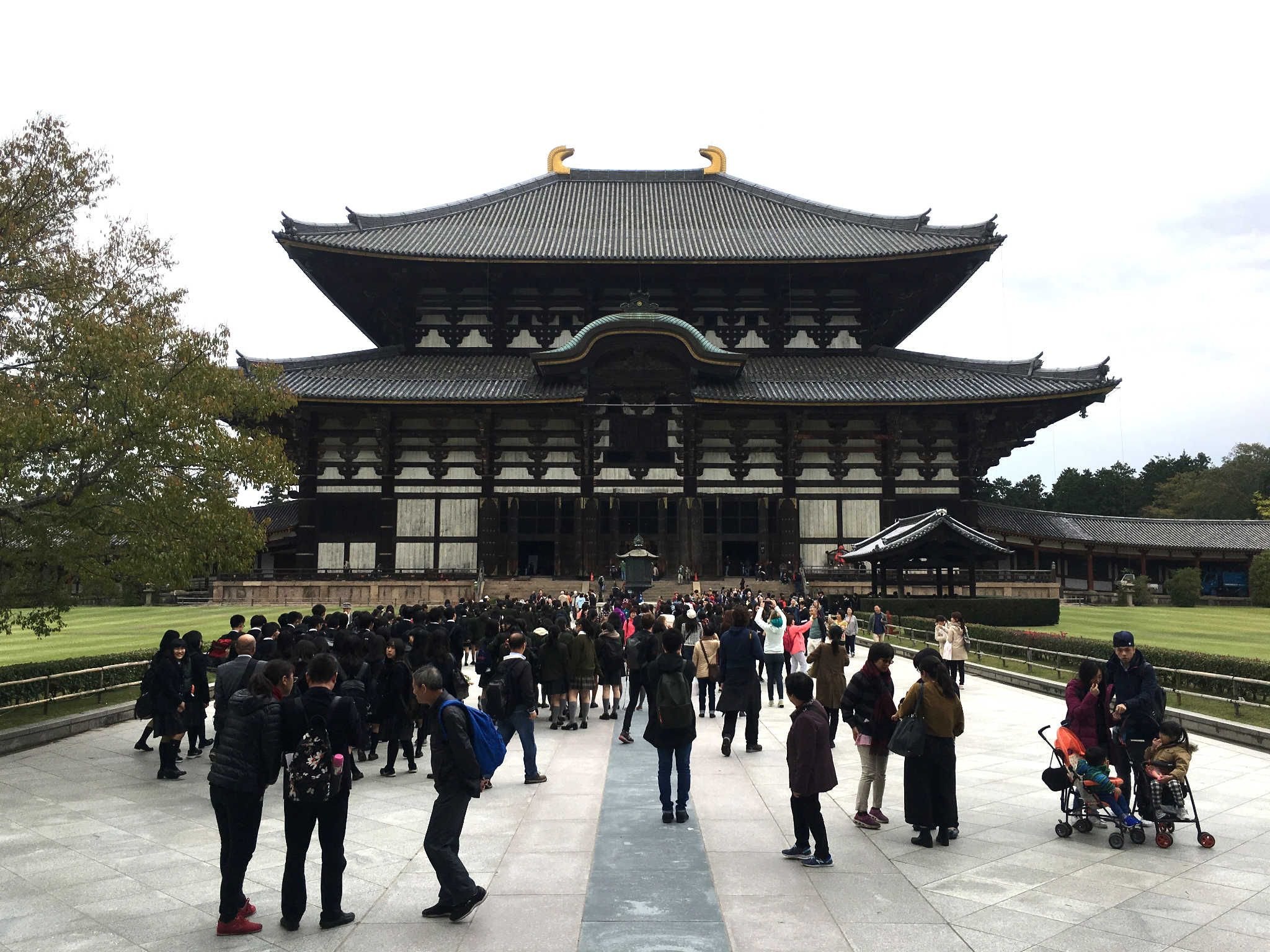
A great censer sees his stream of believers come and light sticks to purify themselves. Once switched on, it is rotated around you as well as around the parts of your body that you would like to heal.
The Todai-ji is certainly not be the most beautiful place or the most Zen, but it is still impressive by the treasures it contains.It is with this pleasant memory that my steps lead me to the next destination, to the discovery of the beautiful city of Nara.
-- @japon
01: Travel diary in Japan, by @japon
02: Tokyo, overcrowded city? Really? by @japon
03: Are the Japanese too disciplined? by @japon
04: Going to Japan without speaking Japanese? by @japon
05: Ueno, more than just a big park in Tokyo, by @japon
06: Asakusa, diving in the heart of Tokyo's historic district, by @japon
07: Ameyoko, Ueno's colorful market, by @japon
08: Tsukiji, the largest fish market in the world, by @japon
09: Climb the steps of Atago Jinja Shrine in Tokyo, by @japon
10: Hama Rikyu, an exceptional park in the heart of Tokyo, by @japon
11: Jimbocho, old books and tempura, by @japon
12: Shinjuku Gyoen Park and the best burger in the world!, by @japon
13: One night in Shibuya, by @japon
14: Takeshita dori : this little street dedicated to fashion (and good crepes), by @japon
15: They lie to you about Kyoto, by @japon
16: The temples and secret garden of Higashi in Kyoto, by @japon
17: Kinkaku-ji, the temple of the Golden Pavilion in Kyoto, by @japon
18: Ryoan-ji, the amazing stone garden in Kyoto, by @japon
19: The Ninna-ji Temple and its extraordinary gardens, by @japon
20: Kyoto Gyoen, the Imperial Palace Park, by @japon
21: Nishiki Market: A Must in Kyoto, by @japon
22: Ginkaku-ji, the temple of the silver pavilion in Kyoto, by @japon
23: Meditate on the path of philosophy, by @japon
24: Nanzen-ji, its impressive gate and two gardens, by @japon
25: Heian-jinju: the big shrine and its garden that I almost missed, by @japon
26: Eikan-do, the temple of the momiji maples in Kyoto, by @japon
27: Kodai-ji, a Kyoto temple dedicated to a woman's love for her husband, by @japon
28: Sannenzaka and Ninenzaka, the streets of Higashiyama, by @japon
29: Kiyomizu-dera, the temple of pure water in Kyoto, by @japon
30: Tofuku-ji: the maple lookout point, by @japon
31: Makis, Yasaka-jinja Shrine and Maruyama Park, by @japon
32: Nijo Castle and its fabulous garden, by @japon
33:Departure for Osaka and its castle, and announcement of a typhoon, by @japon
34: Osaka, the garden Keitaku-en under a torrential rain, by @japon
35: Doguya-suji, the kitchen market in Osaka, by @japon
36: Dōtonbori, the bustling district of Osaka, by @japon
37: Back to Kyoto and Typhoons, meetings and reunions, by @japon
38: Sanjūsangen-dō, the temple of a thousand and one statues, by @japon
39: On the road to Fushimi Inari Taisha, by @japon
40: Daigo-ji, the large Buddhist complex built on a mountainside, by @japon
41: Departure for Nara, we look at the fallow deers and we mistake the garden, by @japon
42: Isui-en, the big Japanese garden of Nara, by @japon
